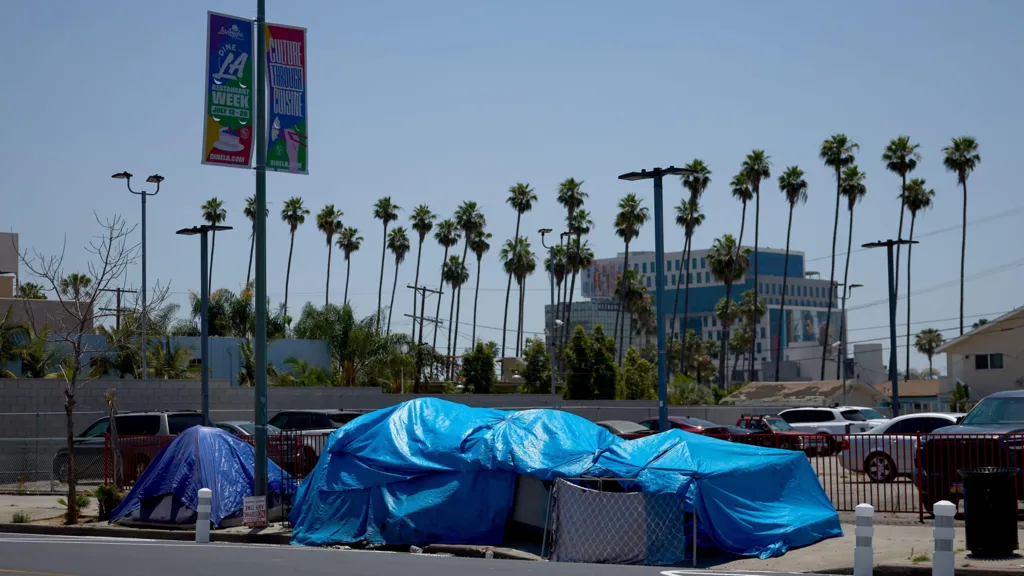
“I still have 20 more minutes before I have to move,” Anthony yelled from his green tent on a Hollywood sidewalk as he heard footsteps approaching.
Officials in Los Angeles had come by earlier to warn him that he could face arrest if he didn’t move his belongings.
They told him about the recent Supreme Court opinion that opened the door for cities and states across the US to punish anyone sleeping outdoors — the most significant ruling on homelessness since at least the 1980s, when many experts say the modern US homeless crisis began.
It’s added to the lengthy list of worries Anthony says he already has.
“I’m just trying to survive,” he told the BBC while lying down in his tent, using a blue backpack as a pillow.
A black trash bag sits inside, filled with what belongings he can carry as he moves from one area to the next.
“Some nights I don’t get no sleep,” he said. “I’ve been tired all day. I just want to lay somewhere comfortable and get a good nap in. And that’s it. I am not bothering nobody.”
Moments later, Anthony packed up his tent and went looking for a new place to call home.
The high court’s ruling is already having a ripple effect on cities across the country, which have been emboldened to take harsher measures to clear out homeless camps that have grown in the aftermath of the pandemic.
Many US cities have been wrestling with how to combat the growing crisis. The issue has been at the heart of recent election cycles on the West Coast, where officials have poured record amounts of money into creating shelters and building affordable housing.
Leaders face mounting pressure as long-term solutions – from housing and shelters to voluntary treatment services and eviction help – take time.
“It’s not easy and it will take a time to put into place solutions that work, so there’s a little bit of political theatre going on here,” Scout Katovich, an attorney who focuses on these issues for the American Civil Liberties Union (ACLU), told the BBC.
“Politicians want to be able to say they’re doing something,”
The problem, Ms Katovich and other advocates say, is arresting or fining the homeless will only worsen the problem.
“This tactic simply kicks the can down the road. Sure, you might clean up a street but the people you arrest will surely be back.”







